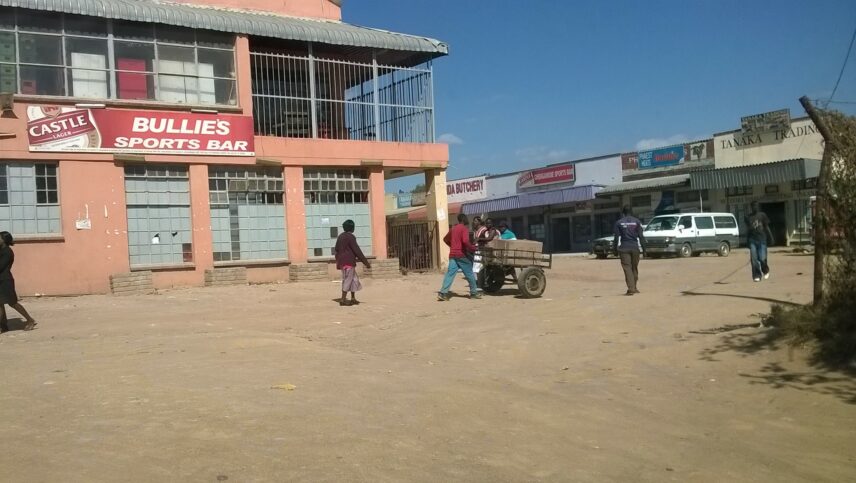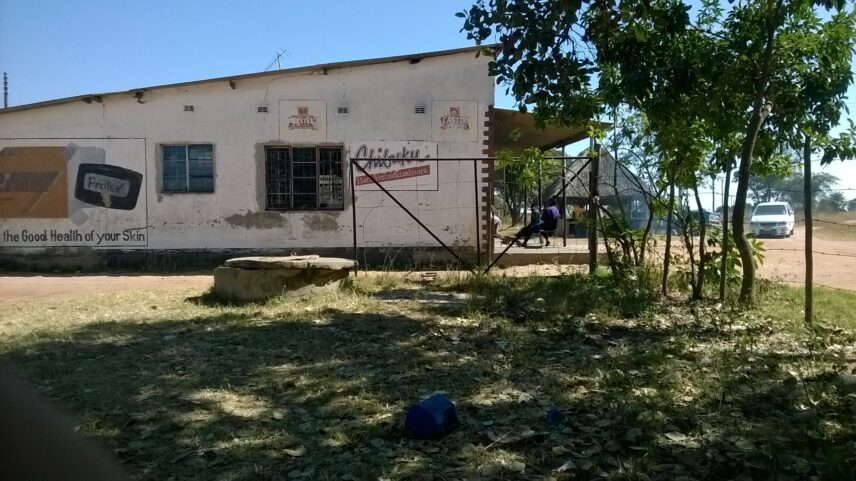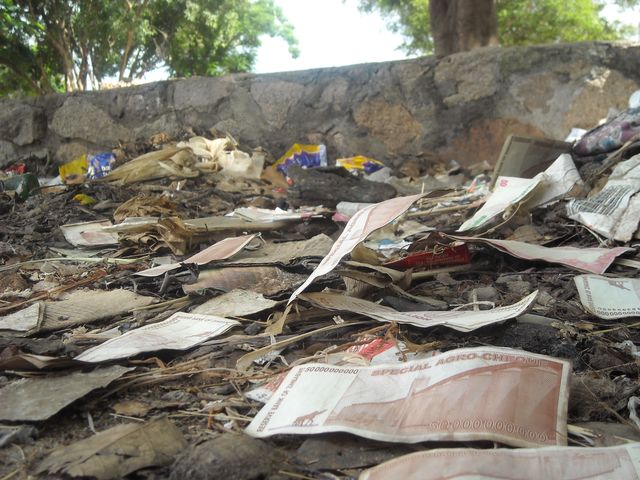Article begins
Airlock1: When air enters a diesel fuel system, preventing proper combustion. Usually caused by an empty tank.
Airlock2 [Zimbabwean slang]: When “gas” (alcohol) stops flowing, preventing a proper level of inebriation. Usually caused by empty pockets.
Most people have heard the lie, “I don’t have money.” Indeed, some of us have told it. It is not the sort of claim one takes at face value, though. Instead, it is generally understood to mean “I don’t have money for this,” or more pointedly, “I don’t have money for you.” In other words, when a person feigns being broke, norms concerning the propriety of circulation tend to overshadow norms of sincerity. In that sense, this petty lie offers a good vantage point for examining the parts of deception that turn less on truth-value than they do on the tangled circuits of words and things. They direct our attention to what we might call deception’s prepositions (lying to whom, for what ends, by what means, etc.). That, in turn, can help us link local conceptions of deceit to the social and economic contexts in which they are applied, contexts where logics of circulation are always front and center.
The lie I’m interested in here concerns beer money in Zimbabwe, and what happens when that money stops flowing consistently. The story begins in 2007, a time of extreme hardship for Zimbabweans. Early that year, after a decade of political and economic turmoil, the country descended into one of the worst episodes of hyperinflation ever recorded. Holding terms constant, a local bus ride that cost about a hundred Zimdollars at the close of 2006—the equivalent of 50 US cents—cost thirty sextillion Zimdollars in January 2009. Strange as it was to deal in such figures, the real center of the hyperinflationary storm was not the zeros, but the pervasive shortages that accompanied them. Shortages, in turn, spawned elaborate hoarding schemes, frenzied efforts to cross the border, and a ubiquitous black market. When a new government of national unity was formed in 2009, one of its first acts was replacing the Zimbabwe dollar with a US-dollar-based monetary system. Within months, the stores were full again.
Amid all of this, I carried out a series of discussions with a group of young men living in a high-density township outside the Zimbabwean capital, Harare. They were lifelong acquaintances. In fact, many of their parents had worked together in a nearby industrial park in the 1970s and 1980s. Those industrial jobs had long since dried up, though, victims of the country’s structural adjustment program, and the young men all made a living by combining minor hustles and shady dealings with skilled or semi-skilled piecework.

At the start of each “talk show”—the term was theirs, plucked from TV—I would introduce a topic. It might be a common phrase or a subject pertinent to their lives, like the AIDS epidemic or fatherhood or the occult, but they did most of the talking and debating. Not surprisingly, the crisis was a constant part of the discussions, just as it was a constant presence in their everyday lives. More surprising, perhaps, was the fact that every talk show revolved around beer references and stories of beer-drinking. Beer—a term Zimbabweans use for every kind of alcohol—was obviously implicated in the crisis, since it was part of the wider economy of shortage. But it was also central to young men’s experience of the crisis. And it was there, at the level of experience, that I encountered some new twists on a long-standing genre of deception.
Several talk shows in, we found ourselves in one participant’s backyard, perched amid the rubble of an old shack. In front of us was a bucket of Chibuku, a mass-produced brand of “traditional” sorghum beer, which we drank from a communal cup as the conversation proceeded. On this occasion, I had deferred to their choice of topic: moral character. The conversation was held in the township lingua franca, ChiShona, but they alternated between the English term “character” and the vernacular term hunhu. Hunhu, in turn, is a first cousin to the idea of ubuntu in neighboring Nguni languages. But where the latter refers specifically to an African mode of humanness, centered on conviviality and interdependence—hence the famous Nguni phrase, “a person is a person because of other people” (umuntu ngumuntu ngabantu)—in ChiShona, hunhu can also refer to a person’s general character and comportment, even if they are bad.
I started the discussion by asking how character was related to common forms of illicit economic activity, like black market money-changing. That relationship had once been quite clear. Indeed, popular culture was replete with disapproving references to backroom deals, unscrupulous tricksters, and the dangers of urban scams and fakery. All emphasized that business should be carried out in a truthful, open manner, and that profits and spending should be linked to observable labor. My question was thus part of a larger effort to establish the limits of “licit” economic action in the context of the economic crisis. It did not lead where I expected, though.

After several minutes, “B-Boy,” a voluble 28-year-old, gave the example of one of their shared acquaintances, who scored on a quick deal then blew the profits in spectacular style at the bar. Getting drunk was a worthy goal, in B-Boy’s estimation, and the source of the money, if he knew it, did not warrant mention. Even the waste was understandable. “When we get some money,” he explained, “it’s our culture to go straight to the bar and spend it on joy.” By “culture,” he meant shared habits, rather than tradition, per se. “Joy,” on the other hand, brought to mind beer, meat, and music (it hinted at sex, too). The problem, he said, was who enjoyed the windfall. Ideally, this sort of conspicuous consumption, a special variety of what Shona speakers term “shining” (kushaina), would result in a potlatch-style sharing of meat and beer—particularly prestigious kinds of beer, like bottled lager or spirits. But on this occasion, as often happened, the shining hadn’t translated into sharing (or sharing with the right people).
Everyone agreed with B-Boy: that was bad hunhu. Sharing is base-level sociality for Zimbabweans. It is scrupulously cultivated in children, and it is more-or-less assumed in contexts of beer-drinking. In fact, the phrase “does he buy beer?” is often used to gauge a person’s overall generosity. Shining, on the other hand, is an act that always risks being viewed as immoral, precisely because showing off often contradicts the norm of sharing.
Shifting registers, though, B-Boy explained that someone who refused to share would likely sponge beer off his friends later, lying that he was broke. “You’ll be buying him beer,” he said, “then when you’re out of money, he’s nowhere to be found. He’ll pretend that he left a long time ago, then come back later and keep buying himself beer.” Put simply, stingy people and show-offs were inevitably liars, too: they would hide their money from view unless it served their own selfish ends.
After taking all of this in, Mandoza, the self-appointed host of the talk shows, suggested, with a devious glint in his eye, that they explore the topic further by dissecting each other’s character. That sounded like a dangerous plan to me, and I said so. But I was overruled, and they gleefully set about the task. Tsotso, they said, drank alone (very bad), but would share his beer with anyone who happened to be around (good). B-Boy was too calculating when it came to beer purchases; he insisted that everyone share costs equally (killjoy!). Hussein was a fair-weather friend: whenever you had money for beer, he suddenly appeared, only to disappear when you were broke. Buju either hid his money entirely or channeled it to his many girlfriends. That, in turn, meant that he never bought beer for the “boys.” As for Mandoza, everyone agreed that he loved shining. Most egregiously, he would stroll about the bar, swinging an expensive quart of lager, saying that his best white friend (me) had bought it for him (I hadn’t, which is to say, he was lying about the source of his money).

Obviously, these and other character evaluations are a testament to the fact that they had grown up together and shared thousands of drinking episodes in common. But they also highlight beer’s dual status in their lives: it both made social relations and offered a way to think about those relations. That double quality echoes the central claims of a much larger literature on alcohol in Africa, including Mary Douglas’s classic concept of “integrated drinking.” Note, however, that beer could “unmake” relations as much as it could make them, and it was invoked as evidence of social ills (like lying), not just social goods. In this talk show, for instance, even those evaluations of character that were not about deceit took it as a possibility to be managed.
Their basic challenge was managing different circuits of money; the lies were techniques for doing that. Shona-speakers often say that their money has a “program” or chinangwa (purpose/destination), by which they mean money set aside for particular ends. Among those ends are routine household expenses, children’s school fees, contributions to wider kin networks and social groups, and capital stock for larger purchases or business expenses. In the ideal world of drinkers, one’s income would be adequate to fund each of these “programs” while leaving a consistent stream of petty cash for consuming beer with friends. For most people, though, such a world has never existed, even in the colonial heyday of wage labor. Moreover, beer is a special commodity, and that means beer-drinking has never just been one monetary circuit among others. In fact, in popular culture, the paradigmatic form of the lie, “I don’t have money,” involves men hiding money from their wives and channeling it to “joy” instead. Song lyrics, TV dramas, novels, poems: all speak constantly to this image of moral dissipation. Such men are recognized as icons for the ills of urban colonial modernity: men “swallowed” by the beer-soaked life of towns, unable to convert their earnings into domestic reproduction and advancement.
In short, calculations about how, where, and to whom money should flow have always proved to be fertile ground for acts of deception and moral evaluation, especially when they involve beer. But Zimbabwe’s hyperinflationary crisis multiplied the challenges young men like these faced. On one hand, it was widely argued that people had been “forced by the situation” to lie, cheat, and otherwise violate norms. More importantly here, the crisis also dissolved the barriers that people had long sought to establish between monetary circuits. With them went much of the criteria for evaluating truth and lie. For instance, later in the talk show, Hussein asked whether it was right to pay somebody’s “cut” from a deal with beer instead of money. Keep in mind that such “cuts” were a crucial source of income at the time, and a key facet of the hyperinflationary economy in general. Say you borrowed bus fare from somebody to go to town for some hustle, he said, then came back and bought that person two fares’ worth of beer. Was that okay? No, Mookie argued. Better to repay them in cash, plus ten percent. Beer should be “extra.”
It was a good template for proper action, but it was constantly thwarted by reality. In fact, every transaction amid hyperinflation provided a unique scope for deceit. Since prices changed by the day, for example, it was not easy to establish what was profit and what was revolving capital, whereas it was simple to manipulate the timing, and thus the value of payment. At a more basic level, it became more difficult to establish whether beer drinking was about work or joy. When you channeled money to beer with friends, was it a business investment? In Hussein’s scenario, it clearly was.
The post-2000 crisis in the country did not so much create lies, then, as sharpen the contradictions that produced and structured them, while simultaneously fracturing the existing techniques for making sense of them. Accordingly, the situation is a potent, albeit unusual, reminder that it is only by examining how words and things circulate that we can make sense of lies.

